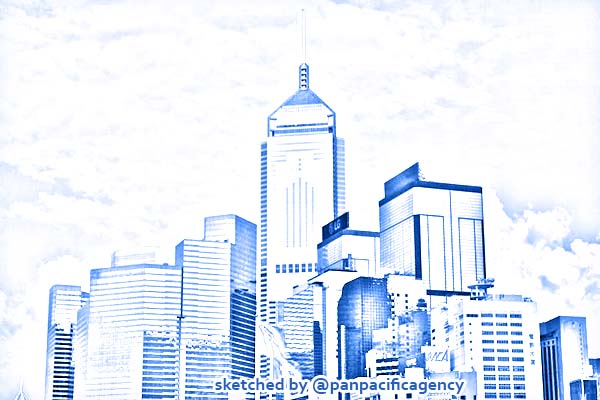Hong Kong still world’s freest economy, but don’t expect that to last: Think tank

Two more people had fallen ill after returning from visits to Wuhan, raising the total number of cases in Hong Kong to seven. PHOTO: ST. Sketched by the Pan Pacific Agency.
HONG KONG, Sep 11, 2020, SCMP. Hong Kong has retained its position as the world’s freest economy, but the think tank responsible for the listings said that was likely to change in the future, with the integrity of the city’s legal system in doubt, South China Morning Post reported.
The Fraser Institute ranked Hong Kong at No 1 on the list for the 30th year running, just ahead of Singapore, but scores for the legal system slumped to their worst level in 20 years, and judicial independence was ranked at its lowest place in 16 years.
Fred McMahon, the Canadian institute’s Dr Michael A Walker Research Chair in Economic Freedom, warned that China’s influence would have a negative impact on the city’s position.
“While Hong Kong remains the most economically free jurisdiction in the world, interference from China, including the violent crackdown on pro-democracy protests, severely undermines Hong Kong’s rule of law, which helps ensure equal freedom for all,” he said.
McMahon added that the city’s score would decline further in future years, because there was a two-year data lag for the annual report, which was released on Thursday night.
The study focuses on the policies and institutions of 162 countries and territories, with indicators covering regulation, freedom to trade internationally, size of the government, property rights, government spending and taxation. China was ranked 124th.
“The apparent increased insecurity of property rights, and the weakening of the rule of law caused by the interventions of the Chinese government during 2019 and 2020 will likely have a negative impact on Hong Kong’s score, especially in Area 2, legal system and property rights, going forward,” the report, which was based on 2018 data, said.
It said factors that would affect future scores included the legacy of the now-withdrawn extradition bill, anti-government protests, and what it called the “brutal suppression” that followed. As well as the new national security law Beijing imposed on Hong Kong, and which took effect on June 30.
The Hong Kong government welcomed the top ranking, but dismissed suggestions the rule of law was being undermined.
“It is with regret that the Fraser Institute pre-empts lower future scores in this area with biased comments, and unfair speculations, based on selective ungrounded views,” a spokesman said.
He said the Basic Law, the city’s mini-constitution, allowed the right of peaceful assembly, but when social unrest threatened public safety, the police had a duty to restore law and order.
The spokesman also defended the national security law, which primarily outlaws treason, secession, sedition, and subversion against the central government.
“We would also like to emphasise that the national security law does not affect the legitimate rights and freedoms – including the freedoms of speech, of the press, of publication, of association, of assembly, of procession and of demonstration, et cetera – of residents,” he said.
He added that Hong Kong was “an inalienable part of” China, with a high degree of autonomy under the “one country, two systems” principle.
Third in the list was New Zealand, with Switzerland, United States, Australia, Mauritius, Georgia, Canada, and Ireland rounding out the top 10.